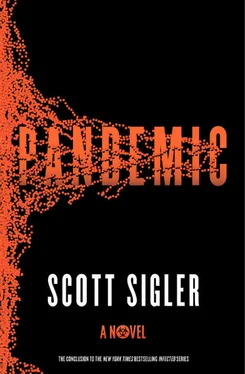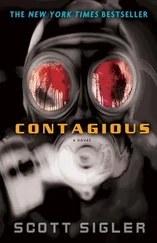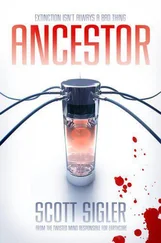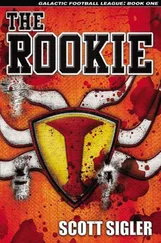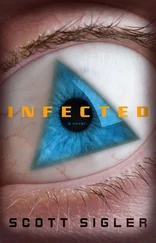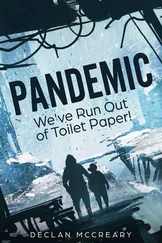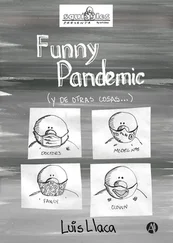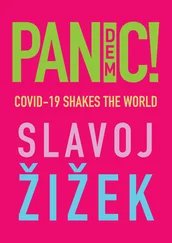This novel is dedicated to my brothers of the Arm Chair Lodge: high school classmates, teammates and lifelong friends. The countless weekends of role-playing taught me how to tell a great story.
For a hundred thousand years, the machine traveled in a straight line.
The Creators had launched it into space along with many others, countless others. The others also traveled in a straight line, but each one in a different direction. It wasn’t long, relatively speaking, before the machine could no longer detect the others, before it could no longer detect the place from which it had come, before it could no longer detect the Creators themselves.
Alone, the machine traveled through the void.
It would have flown in that same straight line for all eternity were it not for a faint trace of electromagnetic radiation known as a radio wave .
Analysis was instant and definitive: the radio wave was not naturally occurring. It was artificial, proof of existence of a sentient race other than the Creators.
For the first time, the machine changed direction.
It moved toward the source of this signal so it could fulfill its sole purpose: find the species that generated the signal, then assist the Creators in wiping that species from the face of existence.
As it traveled, the machine detected more and more transmissions. It studied the signals, learned the languages, assigned meaning to the images. In doing so, the machine defined its target: a race of small, hairless bipeds that lived on a blue planet orbiting a yellow star.
Some twenty-five years ago, the machine reached Earth. Stored inside the machine were eighteen small probes. Each probe was about the size of a soda can, and each probe could cast over a billion tiny seeds adrift on the winds. If these seeds landed on a sentient individual, a host , they could analyze the individual’s composition and send that information back to the machine. The machine could also send information to these seeds: in particular, how to make the seeds hijack the host’s biological processes.
At least, that was the theory.
The first six attempts failed altogether. The seventh successfully produced minor changes in the hosts, but did not reach the level of modification necessary for the machine to complete its mission.
With each successive attempt, the probe gained more and more knowledge about the hosts’ biology. By the twelfth attempt, the machine could reprogram the hosts’ bodies to produce new organisms. The goal of those organisms: build a massive structure — a gate — that would allow the Creators to bend the laws of physics, to instantly deliver an army directly to the blue planet.
But the hosts fought back. They found the organisms and destroyed them.
The machine kept trying. Each attempt, however, cost another irreplaceable probe. Fourteen… fifteen… sixteen. Every attempt involved a new strategy, and yet the hosts always found a way to win.
On the seventeenth attempt, the hosts discovered the machine. They gave it a name: the Orbital . And once again, the hosts defeated the Orbital’s efforts.
The Orbital had no backup. No help, no resupply. Seventeen attempts, seventeen failures. The eighteenth attempt was the machine’s final chance to stop the hosts. Failure meant the hosts would have hundreds of years, perhaps thousands , to improve their technology. They had already made feeble-yet-successful attempts at escaping their planet.
If the hosts developed far enough, they might reach the stars. And if they did, someday, they might encounter the Creators, and — possibly — destroy the Creators. That was the very reason for which the Orbital had been built: to find burgeoning races and help the Creators eliminate them before they could become a threat.
During the first seventeen tries, the Orbital had come very close to success. That meant some of the earlier strategies were worth replicating. And yet in the end, each of those strategies had failed, which meant the Orbital also had to try something new, had to feed all its collected data into this last-ditch attempt.
No more gates.
No more efforts to conquer.
For the eighteenth and final probe, the Orbital’s goal became singular, simple and succinct:
Extinction .
But before the Orbital could launch that probe, the hosts attacked. Over a hundred centuries of existence came to a brutal end as dozens of high-velocity depleted-uranium ball bearings tore the machine to pieces.
Pieces that splashed into Lake Michigan.
The eighteenth probe, however, remained intact. Nine hundred feet below Lake Michigan’s surface, this soda-can-sized object hit the lake bed and kicked up a puffing cloud of loose sediment. As the object sank into the muck, the sediment settled around and on top of it, making it invisible to the naked eye.
The U.S. government searched for the Orbital’s wreckage. Many pieces were found. The soda-can-sized object, however — a tiny speck of alien material resting somewhere among 22,400 square miles of lake bottom — remained undiscovered, undetected.
Until now.
DAY ONE
THE BLUE TRIANGLE
Candice Walker stared at the tiny cone of hissing blue flame.
She couldn’t do it.
She had to do it.
Her chest trembled with the held-back sobs. No more… no more pain… please God no more…
Pain couldn’t stop her, not now. She couldn’t let that happen. She had to get out, had to make it to the surface.
She had to see Amy again.
Candice looked at her right arm, still not quite able to believe what was there, or, rather, what wasn’t there. No hand, no forearm… just a khaki, nylon mesh belt knotted tight around the ragged stump that ended a few inches below her elbow.
The knot’s pressure made the arm feel almost numb. Almost. The belt’s end stuck up like the rigor-stiff, stubby tongue of a dead animal, flopping each time she moved.
She again looked at the acetylene torch’s steady flame, a translucent, blue triangle filled with a beautiful light that promised pure agony.
I can’t let them get me again… do it, now, Candy… do it or die…
When the pain came, she couldn’t let herself scream; if she did, they’d find her.
Candice lowered the flame to her flesh.
The blue jewel flared and splashed, blackening the dangling scraps of skin and arm-meat, shriveling them away to cindered crisps of nothing. Her head tilted back, her eyes squeezed shut — her world shrank to a searing supernova point of suffering.
Before she knew what she was doing, she’d pulled the flame away.
Candice blinked madly, trying to come back to the now, trying to clear the tears. The bubbling stump continued to scream.
Do it so you can see your wife again…
Her mouth filled with blood — she’d bitten through her cheek. Candice looked at her shredded arm, gathered the last grains of strength that remained in her soul. She had to keep her eyes open, had to watch her arm or she’d bleed out right here.
See your job and do it, Lieutenant. DO IT!
Candice lifted her severed arm, opened her mouth and bit down hard on the belt’s flopping end. She tasted nylon and blood. She pulled the belt tight, then brought the blue jewel forward. Flame skittered, seemed to bounce away at strange, hard angles. The sound of sizzling meat rang in her ears, partnering with a hideous scent of seared pork that made her gag, twisted her stomach like a wrung-out towel.
Читать дальше
